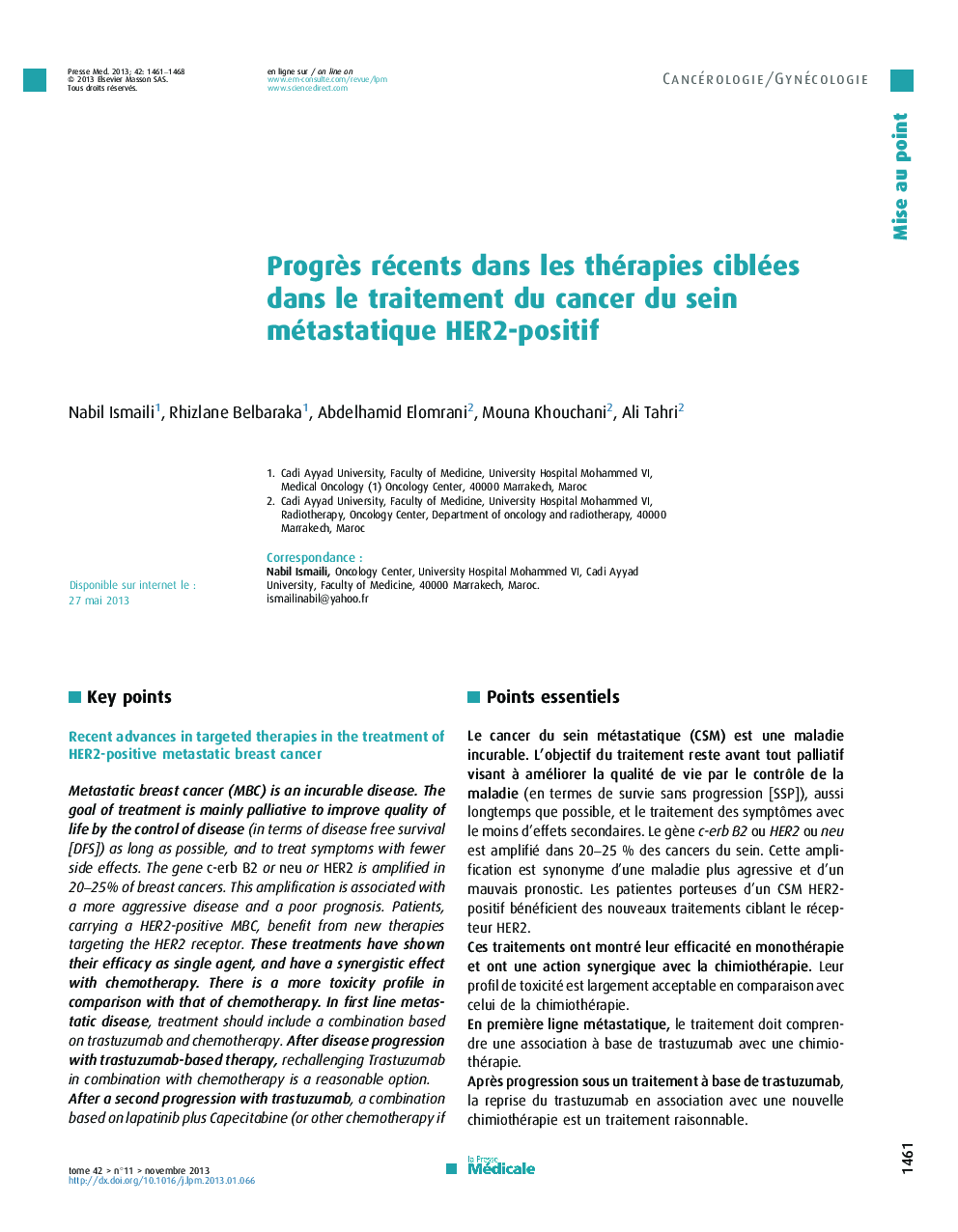| Article ID | Journal | Published Year | Pages | File Type |
|---|---|---|---|---|
| 6155002 | La Presse Médicale | 2013 | 8 Pages |
Points essentielsLe cancer du sein métastatique (CSM) est une maladie incurable. L'objectif du traitement reste avant tout palliatif visant à améliorer la qualité de vie par le contrôle de la maladie (en termes de survie sans progression [SSP]), aussi longtemps que possible, et le traitement des symptômes avec le moins d'effets secondaires. Le gène c-erb B2 ou HER2 ou neu est amplifié dans 20-25 % des cancers du sein. Cette amplification est synonyme d'une maladie plus agressive et d'un mauvais pronostic. Les patientes porteuses d'un CSM HER2-positif bénéficient des nouveaux traitements ciblant le récepteur HER2.Ces traitements ont montré leur efficacité en monothérapie et ont une action synergique avec la chimiothérapie. Leur profil de toxicité est largement acceptable en comparaison avec celui de la chimiothérapie.En première ligne métastatique, le traitement doit comprendre une association à base de trastuzumab avec une chimiothérapie.Après progression sous un traitement à base de trastuzumab, la reprise du trastuzumab en association avec une nouvelle chimiothérapie est un traitement raisonnable.Après une deuxième progression sous trastuzumab, l'association à base de lapatinib plus capécitabine (ou une autre chimiothérapie si la capécitabine a été préalablement utilisée), doit être indiquée ; l'association à base de lapatinib et de trastuzumab est un traitement raisonnable.L'inclusion dans des essais cliniques doit continuer pour améliorer les résultats thérapeutiques de nos patientes.
Key pointsMetastatic breast cancer (MBC) is an incurable disease. The goal of treatment is mainly palliative to improve quality of life by the control of disease (in terms of disease free survival [DFS]) as long as possible, and to treat symptoms with fewer side effects. The gene c-erb B2 or neu or HER2 is amplified in 20-25% of breast cancers. This amplification is associated with a more aggressive disease and a poor prognosis. Patients, carrying a HER2-positive MBC, benefit from new therapies targeting the HER2 receptor. These treatments have shown their efficacy as single agent, and have a synergistic effect with chemotherapy. There is a more toxicity profile in comparison with that of chemotherapy. In first line metastatic disease, treatment should include a combination based on trastuzumab and chemotherapy. After disease progression with trastuzumab-based therapy, rechallenging Trastuzumab in combination with chemotherapy is a reasonable option.After a second progression with trastuzumab, a combination based on lapatinib plus Capecitabine (or other chemotherapy if Capecitabine was previously used) should be proposed; the combination based on lapatinib and trastuzumab is reasonable.Inclusion in clinical trials must continue to improve outcomes for our patients.
